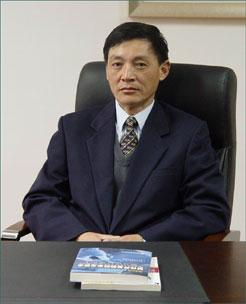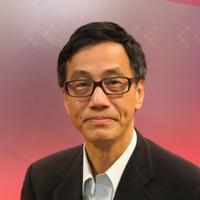Four speakers are invited in ASEE&T 2012. The detail information of the talks and speakers will be updated soon.
• Prof. Daoxu Chen, Nanjing University, China
• Prof. Daniel Port, University of Hawaii, United States
• Prof. Tim Lethbridge, University of Ottawa, Canada
• Prof. T.Y. Chen, Swinburne University, Australia
Session 1: 9:00-10:10, April 17, 2012, Feiyimin Building 704B
Speaker: Prof. Daoxu Chen , Nanjing University , China
Session Chair: TBA
Title: Just Six Numbers--Some Consideration about Computer Education
Abstract: TBA
About the Speaker:

TBA
Session 2: 10:50-12:00, April 17, 2012, Feiyimin Building 704B
Speaker: Prof. Timothy C. Lethbridge , University of Ottawa, Canada
Session Chair: TBA
Title: Teaching Introductory Software Engineering
Abstract: Attendees will learn how to motivate students to learn the essentials of software engineering, whether the learners be students in a software engineering degree program, or in computer science, computer engineering or some related discipline. The presenter will discuss his teaching philosophy, lessons he has learned since he first taught this material in 1990, as well as techniques and tools he uses. The presentation will for the most part be about teaching, but he will provide a few short demonstrations of some techniques and tools as well. These include having students modify an existing small system in laboratory sessions and as a course project, as well as mixed-mode teaching with live use of tools in the classroom combined simultaneously with blackboard and PowerPoint. Lethbridge will also given a brief overview of the curriculum of the SE201 course from the ACM/IEEE curriculum standard, which he helped develop. Although the introductory curriculum provides an overview of the entire field of software engineering, Lethbridge has recently found it best to put deeper emphasis on UML modeling, design principles, reusability, agility and professionalism.
About the Speaker:

Timothy C. Lethbridge, PhD., P.Eng., I.S.P, CSDP, ITCP is a full professor of software engineering and computer science at the University of Ottawa, Canada. He has taught since 1986, with topics including software usability, introductory software engineering, professionalism, and advanced software design. He has published over 100 refereed papers, of which 20 have been in the area of software engineering education. McGraw Hill has published his widely-used introductory textbook on software engineering. He is currently head of the Computer Science Accreditation Council of Canada, which accredits software engineering and computer science programs. He is also a member of the IEEE Computer Society's CSDA and CSDP committees, and was steering committee chair of CSEE&T for five years. He was curriculum co-chair of the joint IEEE-ACM committee that published the SE2004 software engineering curriculum standard. Lethbridge has considerable industrial experience, which brings a taste of the real world to his teaching and research. He worked for Nortel for two years, and has performed research with IBM, Mitel, Ericsson and other companies. Lethbridge is both a licensed Professional Engineer, in the field of software, and also an Information Systems Professional, which is the legally recognized certification in Canada for the computing profession. More information about Lethbridge can be found at http://www.site.uottawa.ca/~tcl/
Session 3: 14:00-15:10, April 17, 2012, Feiyimin Building 704B
Speaker: Prof. Dan Port, University of Hawaii at Manoa, USA
Session Chair: TBA
Title: Establishing a combined software research and education program
Abstract: It has become a de-facto standard practice by seasoned software engineering researchers to combine software engineering research and software engineering education. This effort introduces new research and experimental areas into the curriculum along with the means to evolve and refine current practices. The curriculum itself becomes a valuable research area with direct applications to "real-world" practice. The approach in particular tries to deal with four fundamental issues within software engineering and software engineering education: (1) Exposing students to a "no-surprises" full lifecycle software engineering experience (2) Dealing with the increasing distribution and diversity of students (3) Providing students a non-trivial "real-world" customer-based development experience within the constraints of the university (4) Introducing software engineering research and industry best practices into the curriculum. These efforts have met with great success and proven a boon in the classroom while providing a stable and easy to participate in research stream for academics and their research oriented students.
However how does a new software engineering begin to establish a combined research and education effort? Through a number of representative examples this session will introduce the general approach and practical advice to establishing such efforts. During the session participants will "workshop" ideas and get feedback on implementing a program for themselves.
About the Speaker:

Dan Port, Ph.D. is an Associate Professor in the Department of Information Technology Management. He is a veteran in the computing industry with over 30 years professional and academic experience. Previously he worked in Professional Services at NeXT Computer, Inc. and served as the director of technology at EC2, the Multimedia Business Incubator Project at the Annenberg Center for Communications at USC. Dan has extensive entrepreneurial experience founding and participating in technology intensive startup companies. His primary research area is Value Based Software Engineering where he currently specializes in software assurance. He is an active visiting affiliate in the Software Product and Process Assurance group at NASA's Jet Propulsion Laboratory and a frequent software assurance consult to JAXA. Dan teaches ITM and Financial Engineering courses at the Shidler College, where he has received best teacher awards.
Session 4:
Speaker: Prof. T.Y. Chen,
Session Chair: TBA
Title: What a Software Tester Needs to Know in Software Testing and beyond
Abstract: In this talk, we are going to present and discuss what are the concepts and techniques of software testing or other fields, which are most essential to a good software tester. We hope this talk will provide some insights into the education and training for software testers.
About the speaker:

T. Y. Chen got his BSc and MPhil from The University of Hong Kong, MSc and DIC from the Imperial College , The University of London, and PhD from The University of Melbourne. He is currently holding a Professorship of Software Engineering at Swinburne University of Technology, Australia. He is also the Leader of the Software Analysis and Testing Group at Swinburne. Prior to joining Swinburne, he has taught at The University of Hong Kong and The University of Melbourne. He is a member of the Editorial Board of Software Testing, Verification & Reliability. His main research interests include software testing, debugging and software maintenance.


